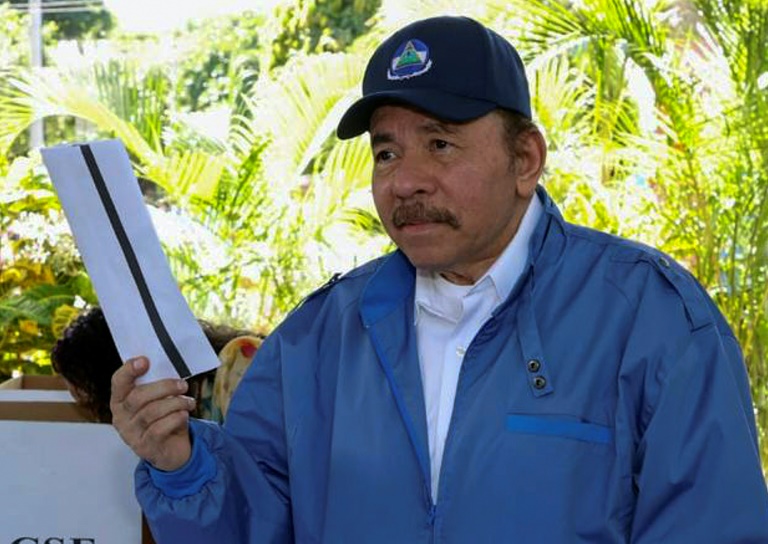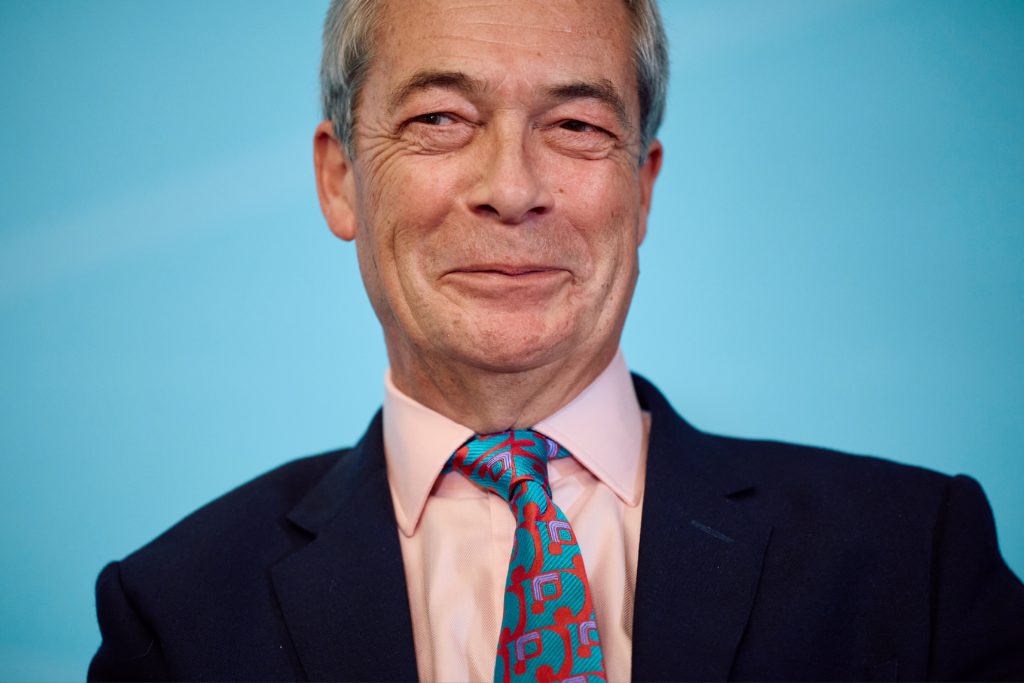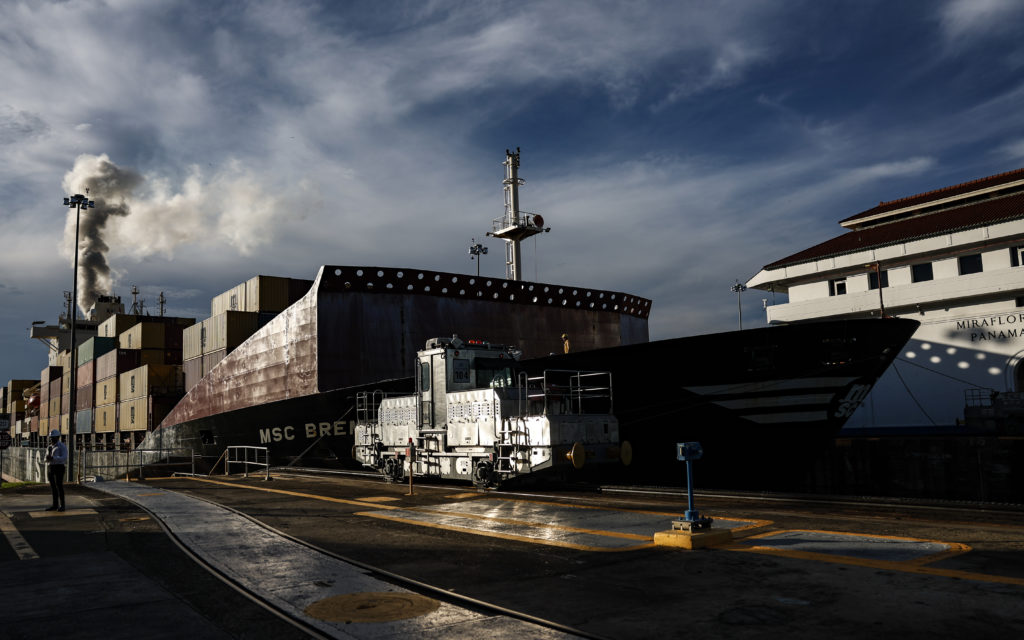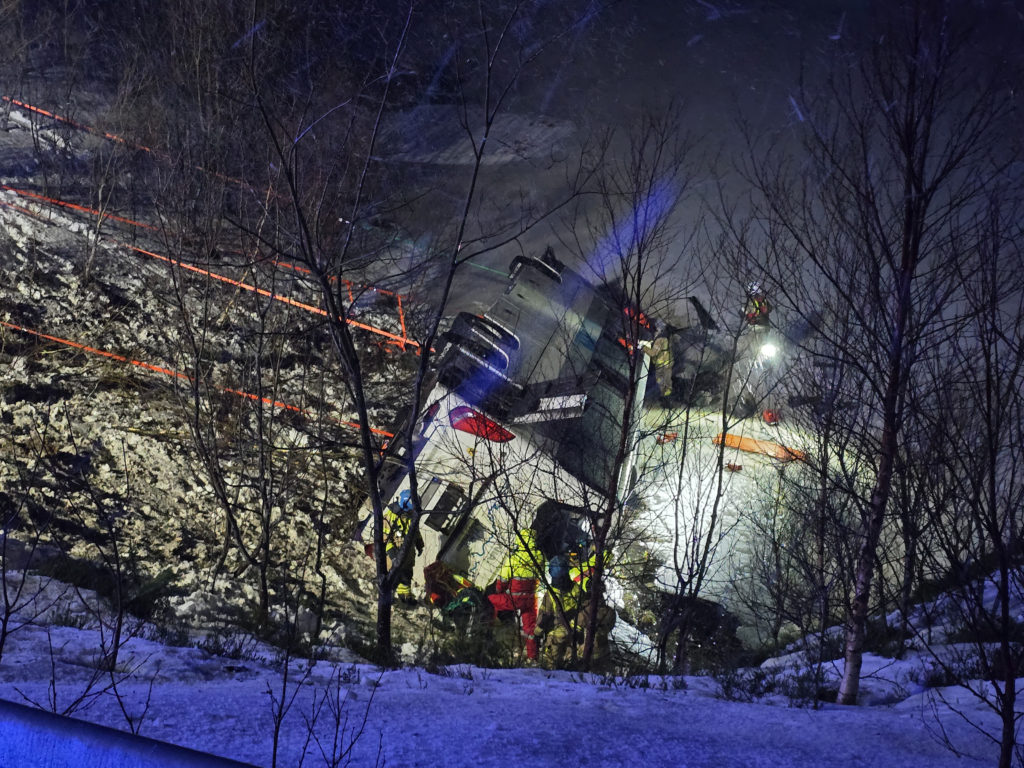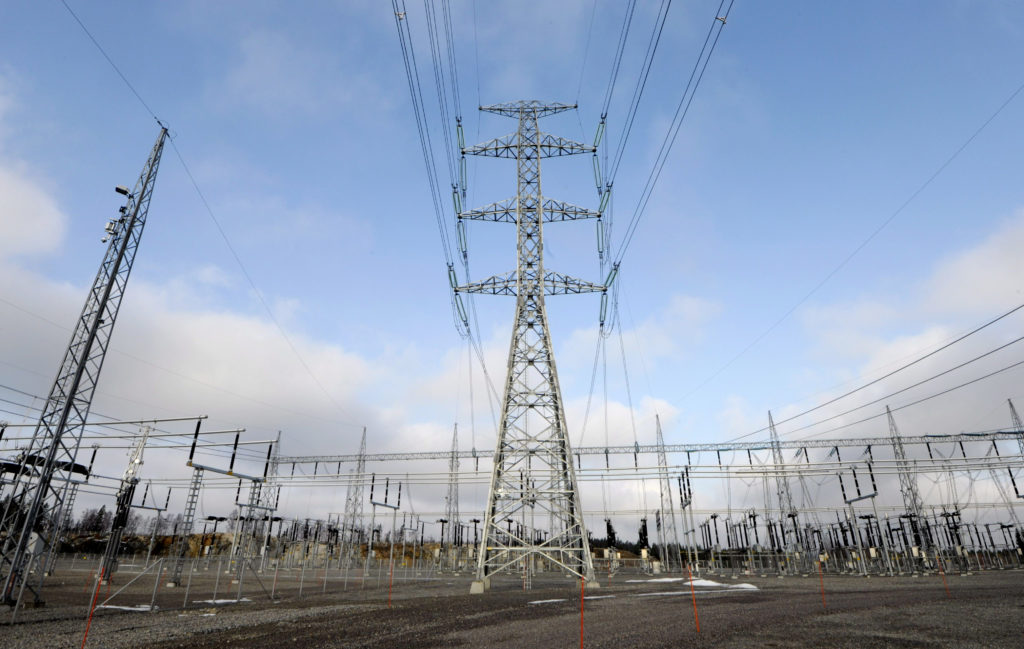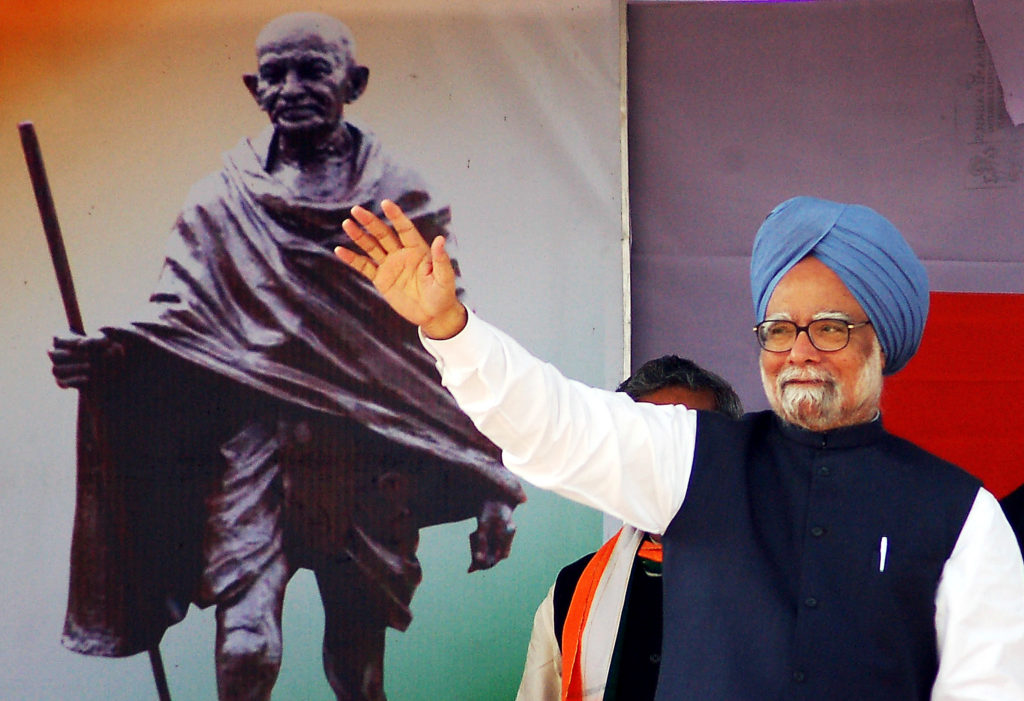International opprobrium rained down Monday on Nicaragua’s longtime leader Daniel Ortega after he won a fourth straight presidential term in what critics described as a “farce” election with his political opponents jailed or exiled.
With Ortega’s victory in Sunday’s poll a foregone conclusion, the United States and Europe led fierce criticism of the 75-year-old former guerrilla whom they accused of dictatorial tactics and of crushing dissent.
By early Monday, ballots had been counted in 49 percent of polling stations, with Ortega and wife Rosario Murillo, his vice president, securing 75 percent of votes, according to official partial results from the country’s Supreme Electoral Council.
Nicaragua is now fully “an autocratic regime” after the deeply deficient elections handed Ortega his fifth overall presidential term, the European Union said Monday.
The polls “lack legitimacy” after Ortega “eliminated all credible electoral competition,” EU foreign policy chief Josep Borrell said in a withering statement on behalf of the 27-nation bloc, adding that further sanctions were being considered.
The election took place without independent international observers and with most foreign media denied access to the country.
Spain branded the vote “a farce against democracy,” with seven would-be presidential challengers detained in Nicaragua since June and the five contenders Ortega did face dismissed by critics as regime loyalists.
US President Joe Biden said the outcome was “rigged” long before the “sham” vote.
Ortega and Murillo “orchestrated… a pantomime election that was neither free nor fair, and most certainly not democratic,” Biden said in a statement, adding the pair now run Nicaragua “as autocrats.”
Overnight in the streets of the capital Managua, supporters waving red and black flags of Ortega’s party celebrated in the Plaza de las Victorias.
“Whether the Yankees like it or not, we rule!” said one woman.
Nicaragua’s neighbor Costa Rica, however, refused to recognize the elections because there was no way to determine whether they were “credible, independent, free, fair and inclusive.”
– Opposition ‘terrorism’ –
Former guerilla hero Ortega launched a new attack on his opponents Sunday, saying: “This day we are standing up to those who promote terrorism, finance war, to those who sow terror, death.”
He was referring to Nicaraguans who took part in massive protests against his government in 2018, which were met with a violent crackdown that claimed more than 300 lives in Central America’s poorest country.
Some 150 people have been jailed since then, including 39 opposition figures rounded up since June in the run-up to the vote.
The Nicaraguan Center for Human Rights (Cenidh) said Nicaragua was a “police state” using tactics of “fear (and) social control” to “crush the opposition.”
Opponents said the vote was marked by mass abstention even as the government claimed a turnout of 65 percent.
The Urnas Abiertas (open polling booths) independent observatory estimated turnout at a paltry 18.5 percent.
Fear vied with apathy among the 4.4 million Nicaraguans eligible to cast votes in the country of 6.5 million.
“No one from my family went to vote. This was a mockery for Nicaraguans,” said a 49-year-old woman who runs a grocery store.
Like many others, she was too scared to give her name.
At one polling station, Pablo de Jesus Rodriguez, a 26-year-old carpenter and bricklayer, told AFP as he cast his vote: “The president has done good things for our country.”
– Unspecified attacks –
On Sunday, Venezuela’s President Nicolas Maduro — his own 2018 re-election not recognized by most of the international community — congratulated Ortega on his imminent victory.
Cuba President Miguel Diaz-Canel, the head of a one-party state, praised the “demonstration of sovereignty and civility in the face of a cruel media campaign.”
Former Bolivia leader Evo Morales, who in 2019 attempted to win a fourth consecutive term despite his country’s constitution limiting a president to two, blasted Washington for trying to “ignore the democratic and sovereign will of Nicaragua.”
Meanwhile, Russia attacked the West for not recognizing the results.
“We consider this unacceptable and we strongly condemn such a stance,” Russian Foreign Minister Sergei Lavrov said.
A firebrand Marxist in his youth, Ortega ruled Nicaragua from 1979 to 1990, after the guerrilla ousting of US-backed dictator Anastasio Somoza Debayle.
Returning to power in 2007, Ortega has won reelection four times and quashed presidential term limits.
Jailed opposition figures, including journalists, are accused of unspecified attacks on Nicaragua’s “sovereignty” under a law passed by a parliament dominated by Ortega allies, who also control the judiciary and electoral bodies.
Election authorities banned the country’s main opposition alliance from contesting Sunday’s vote.

